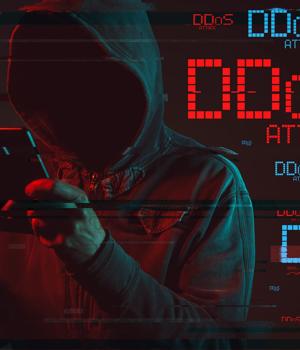Security News > 2005 > July > Fear, Anger, Distrust

http://www.computerworld.com/securitytopics/security/story/0,10801,103060,00.html Opinion by Frank Hayes JULY 11, 2005 COMPUTERWORLD Can your users change when it comes to security? Yes, probably. At least that's what two surveys that came out last week suggest. The Pew Internet & American Life Project polled 1,300 Internet users about spyware and related problems (the results are online at Pewinternet.org). Meanwhile, Computerworld.com columnist Larry Ponemon reported on a Ponemon Institute survey of 400 people who were victims of a personal data breach [QuickLink 55301] [1]. Neither study is intended to be about changing what users do. But the lessons they offer in that line are pretty compelling. Unfortunately, you may not much like those lessons. See, the main thing that's clear from both studies is that fear, anger and distrust are what motivate users to change. In the Pew survey, 91% of users said fears about malware have made them change how they deal with e-mail, the Web, downloads and even software user agreements. And, according to the Ponemon survey, most of those whose personal information is leaked will dump the bank, credit card or other company that exposed their data. So users will change -- if they get afraid, angry or distrustful. That might be useful in getting them to stop doing risky, insecure things. But only if you make sure they're not afraid, angry or distrustful in your direction. So threatening them with punishment for breaking security rules won't work. Neither will trying to force them to obey or lying to them. No wonder IT's standard techniques for getting users to behave always fail. They're exactly the wrong approach. Then what might work? Beyond fear, anger and distrust, there are some other useful insights to be gleaned from these studies: * Users like the personal touch. According to the Ponemon survey, users who got a phone call after their personal data was exposed were much more likely to trust the company than were users who just got a written notice. Lesson for IT: Memos don't work. Personal contact is expensive, and lots of IT people could use some polish on their people skills. But if you want to change behavior, you'll need to do it one on one. * Users drag their feet, but they want a quick response from others. The Pew survey says two-thirds of users will wait a week or more before dealing with a suspected spyware infection, and 20% will never deal with it. But the Ponemon results say users resent any delay in being informed of a security breach. Lesson: You need to respond fast, then convey that urgency to users so they'll call you as soon as they suspect a problem instead of letting it fester. * Users pass the buck. Pew says users often blame friends or family for spyware infections. ("Nope, it's not my fault.") Lesson: Never mind the blame for past problems. Focus on things that "we" -- meaning users and IT staffers -- can do to avoid this problem going forward. * Users do better with follow-ups. In fact, Ponemon says that 82% of users expected more help than they got after their data was exposed. Lesson: Don't do just enough. Don't tell them just once. Remind them. Repeat the message. Then check back to reinforce it with a positive spin. ("Everything working OK? Still keeping an eye out for those bad e-mail attachments?") * Finally, users want more information. Really. Ponemon says 67% of users thought the information they got after a security breach was incomplete or unreliable. Pew says 60% of users who have spywarelike problems can't figure out what's wrong. Lesson: Give users that information. Make it straight, clear and useful. Ask for questions. Make sure users understand your answers. You want them to clearly grasp security threats and the damage they can do. After all, now that you know the strongest motivators of change for users, you want their fear, anger and distrust aimed squarely at security threats -- where they belong. -=- Frank Hayes, Computerworld's senior news columnist, has covered IT for more than 20 years. Contact him at frank_hayes at computerworld.com. [1] http://www.computerworld.com/q?55301 _________________________________________ Attend the Black Hat Briefings and Training, Las Vegas July 23-28 - 2,000+ international security experts, 10 tracks, no vendor pitches. www.blackhat.com
News URL
http://www.computerworld.com/securitytopics/security/story/0,10801,103060,00.html